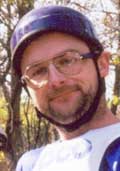and Development Program
November 20, 2010 -- Hershey, PA
The USA Wildwater Team Training and Development Program is well under way and is achieving some of its goals right out of the gate. The US has never provided in depth coaching for all its high level athletes, mainly because of the huge distances involved in getting athletes together for training camps, and a paucity of funding to accomplish this expansive task. The Team Training and Development Program, teamed with a forward thinking change in the timing of US team Trials, is aimed at combining the technology of online Sports Science with more traditional approaches to increase the performance of US athletes in international competition. Along the way the by-products are an integrated training group and program to attract sponsors with, and a spread of training expertise from the small base of coaches through the athletes to those who are being introduced to the sport across the country. It sounds impressive doesn't it? Well, what is the reality?
Over 40 athletes in various classes who achieved qualifying performances for the US Senior Wildwater Team at the 2010 Team Trials on the Nantahala or 2011 Team Trials on the Skagit, or who were awarded byes for the World Championships in Sort 2010 were invited to be part of the Program. Twelve athletes accepted, and we currently have 9 athletes from Georgia to Massachusetts and Colorado to Seattle, who we are monitoring on a regular basis in the program after some dropouts and injuries. Each of these athletes has primary and secondary coaches, each of whom receive Training Logs and provide feedback on a weekly or bi-weekly basis. Where possible, GPS data is shared via online training sites to allow coaches to observe positional and speed data, heart rate, elevation, cadence, stride etc when training in a boat or cross training. These online resources have proved very influential in providing feedback on training, and we hope to continue to evolve their use. In addition, we have begun sharing technique videos online to allow remote coaches to give feedback and provide stroke drills for athletes who nee to improve their stroke (i.e. pretty much everyone!). Finally, training ideas and practical approaches to use of equipment are posted in a Yahoo group online.
In addition to the online approaches, the program organizes two yearly Training Camps, which may expand to more in a greater variety of locations as more funding becomes available. The format of the Training Camps will be similar, with two days of flatwater and cross training, followed by two days of whitewater training and racing. Physiological testing will be performed to get an estimation of what fitness aspects individual athletes need to work on, and which discipline (sprint or classic) they may be more suited to. Practical aspects of training, such as the use of everyday items like wiffle balls or cable ties to allow constant self evaluation of technique by athletes when training alone, are also taught. When on whitewater, emphasis is on technique and mental aspects of learning a river efficiently, rather than bombing down the river trying to stay up with the guy in front. Finally, small discussion groups swap ideas about various aspects of training during rest periods.
Overall I am hopeful for the future of the program, and for those of you who know me the fact that I am positive about this must surely mean something! I thank all of the athletes involved for their enrollment in the program and their faith in its ability to succeed. I must also, of course, thank the coaches involved in the project, who are contributing large periods of their time with no recompense – Andrew McEwan, Chris Hipgrave, Chris Norbury and Tom Wier. I must also thank the helper at the recent Tohickon Training Camp, Emmy Truckenmiller, without whose dedication in the pouring rain there would have been limited video analysis. Without the dedicated volunteers helping out in all aspects of wildwater we would have no sport.
